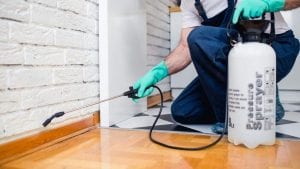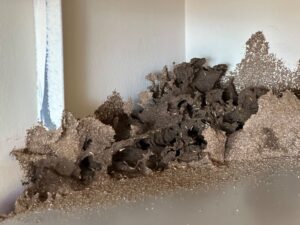Effective Pest Control for Sydney Homes and Businesses
Pest control is essential for maintaining a healthy and safe environment in Sydney. Effective pest management not only protects your property from damage but also contributes to the well-being of your family by minimizing health risks associated with pests. Understanding the local pest landscape is crucial for implementing the right strategies at the right time.
In Sydney, common pests such as cockroaches, termites, and rodents can significantly impact your home. Knowing how to identify these pests and understanding their habits can help you take preventive measures. You’ll discover that timely action can save you money and prevent major infestations.
This article explores various pest control methods available in Sydney, including DIY solutions and professional services. By following our guide, you’ll be better equipped to tackle any pest issues that may arise. Keeping your living space pest-free is not just an option; it’s a necessity for a comfortable home.
Identifying Common Sydney Pests
Pests are a significant concern for both residents and businesses in Sydney. Recognizing the common species and understanding their behaviors can help mitigate their impacts effectively.
Rodents and Their Impact on Urban Areas
Rodents, particularly rats and mice, are prevalent in Sydney’s urban environment. Their presence can disrupt food supplies and carry diseases.
- Common Species: The Norway rat and the house mouse are the most frequently encountered.
- Health Risks: Rodents can transmit diseases like leptospirosis and hantavirus, creating health hazards for humans.
- Signs of Infestation: Look for droppings, gnaw marks, and nests. Early identification can prevent larger problems.
Effective rodent control involves sealing entry points and maintaining cleanliness. Regular inspections can help keep your space rodent-free.
Cockroaches: Species and Habitats
Cockroaches thrive in Sydney’s warm climate, making infestations common in homes and businesses. Understanding their species helps in targeting control strategies.
- Major Species: The German cockroach and the American cockroach are the most notable.
- Habitat Preferences: They prefer dark, damp areas like kitchens, bathrooms, and basements.
- Health Concerns: Cockroaches can trigger allergies and asthma due to their droppings and shed skins.
Prevention includes keeping food sealed and maintaining cleanliness. Consider professional pest control if you spot signs of an infestation.
Termites: Understanding Their Damage
Termites are a significant concern for property owners in Sydney. These pests are known for causing extensive structural damage, which can be costly to repair.
- Common Species: The eastern subterranean termite is particularly damaging.
- Signs of Infestation: Look for mud tubes, discarded wings, and hollow-sounding wood.
- Damage Assessment: Termites can weaken wooden structures, posing safety risks.
Early detection is crucial. Regular inspections and treatments can protect your property from potential infestations.
Professional Pest Control Services
Effective pest management is essential for maintaining a safe and healthy environment. By understanding how to choose the right pest control company and recognizing integrated pest management strategies, you can make informed decisions for your pest control needs.
Choosing the Right Pest Control Company
Selecting a reliable pest control company requires careful consideration. Start by assessing their experience and expertise in handling specific pests in Sydney. Look for businesses that employ certified technicians and follow industry standards.
Customer reviews and referrals can provide insight into the company’s reputation. Key questions to ask include:
- What type of pest control methods do you use?
- Are your products eco-friendly?
- Do you offer guarantees for your services?
A transparent company will provide clear information about their services, techniques, and pricing. Ensure they conduct thorough inspections before recommend treatments.
Integrated Pest Management Strategies
Integrated Pest Management (IPM) is a holistic approach combining multiple strategies to control pests effectively. IPM focuses on long-term prevention and minimizes the use of harmful pesticides.
Key components of IPM include:
- Monitoring: Regular inspections help identify pest issues before they escalate.
- Prevention: Employing barriers and proper sanitation reduces pest attraction.
- Control methods: This can include a mix of biological, physical, and chemical controls.
By prioritizing IPM, you can manage pest problems sustainably while protecting your home and environment. Choose companies that utilize IPM techniques to ensure a comprehensive approach to pest control.
DIY Pest Control Tips and Safety
Effective pest control can involve a variety of methods that are both safe and practical for your home. Understanding how to apply natural and chemical repellents, along with preventative measures, will help you effectively manage pests.
Natural and Chemical Repellents
You can use both natural and chemical repellents to combat pest infestations. Natural options include essential oils such as peppermint, eucalyptus, and tea tree oil. Mixing these oils with water in a spray bottle can deter insects effectively.
For chemical repellents, consider products approved for home use. Always read the label and follow the instructions closely. Ingredients like pyrethrins and diatomaceous earth can be effective against various pests.
When using any repellent, apply it in areas where pests are likely to enter. It’s crucial to wear gloves and a mask to protect yourself from potential irritation.
Preventative Measures for Homeowners
Implementing good sanitation practices can significantly reduce the likelihood of pest infestations. Start by sealing gaps and cracks in your home’s exterior. Use caulk or foam to block entry points for rodents and insects.
Regularly cleaning your kitchen and dining areas helps eliminate food sources. Store food in airtight containers and promptly clean spills.
Outdoor maintenance is equally important. Keep your yard tidy by regularly mowing the lawn and clearing debris. Store firewood away from your home and maintain a barrier of gravel to minimize pest access.
Taking these steps can create an unwelcoming environment for pests, making your home less attractive to them.
Regulations and Environmental Considerations
When dealing with pest control in Sydney, it is essential to understand the local laws governing pest management practices and the importance of environmentally friendly solutions. Keeping up with these regulations ensures safety and compliance while considering the ecological impact of pest control methods.
Sydney’s Pest Control Laws
Sydney pest control services must adhere to strict regulations under the Australian Pesticides and Veterinary Medicines Authority (APVMA). These regulations are designed to ensure that pest management practices are safe for humans, pets, and the environment.
You must ensure that the pest control company you choose is licensed and follows local health and safety standards. Additionally, they are required to provide you with detailed information about the pesticides used, including their potential risks and any necessary precautions.
Always request an integrated pest management (IPM) plan, which emphasizes minimizing chemical use while effectively managing pests. These plans are essential for residential and commercial properties to comply with local laws.
Eco-Friendly Pest Control Solutions
You can opt for eco-friendly pest control solutions that prioritize safety and environmental impact. Many companies now offer organic or natural pest control methods that utilize non-toxic substances.
Common eco-friendly practices include using plant-based pesticides, biological control agents, and barrier methods. These techniques are effective and safer for your family, pets, and the environment.
Furthermore, implementing preventive measures, such as sealing entry points and maintaining clean surroundings, can significantly reduce pest infestations. Embracing these environmentally considerate methods aligns with local sustainability goals and promotes a healthier living space.
Frequently Asked Questions
This section addresses common inquiries related to pest control in Sydney. You will find information about costs, frequency of treatment, and important factors when choosing a service provider.
What are the typical costs associated with professional pest control services in Sydney?
The costs for pest control services in Sydney typically range from $150 to $300 per visit, depending on the type of pest being treated. Initial inspections may incur additional fees, while ongoing treatments can offer package deals at a reduced rate.
How frequently should pest control be carried out in Sydney homes?
For most Sydney homes, regular pest control treatments should occur every 3 to 6 months. This schedule helps manage common pests while ensuring your living environment remains safe and comfortable.
What are the factors that determine the price of pest control services?
Several factors impact the pricing of pest control services, including the type of pest, the size of the property, and the severity of the infestation. Additional costs may arise from specialized treatments or prolonged service plans.
What are the key considerations when choosing the best pest control provider in Sydney?
When selecting a pest control provider, consider their experience, qualifications, and customer reviews. It’s also vital to check if they use environmentally friendly products and offer warranties on their services.
Are tenants or landlords responsible for pest control in rental properties in New South Wales?
In New South Wales, landlords typically bear the responsibility for pest control unless the pests are introduced by the tenant. It is essential to clarify this in the lease agreement.
How do customer reviews impact the choice of pest control services in Sydney?
Customer reviews play a crucial role in selecting a pest control service. You can gauge the effectiveness, professionalism, and reliability of a company through the experiences shared by previous clients.
The Article The Best Pest Control Service In Sydney NSW First Appeared ON
: https://ad4sc.com
The Article The Best Pest Control Service In Sydney NSW Was Found On https://limitsofstrategy.com



It’s intriguing to delve into the complexities of pest control, especially in a vibrant and diverse city like Sydney. The relationship between our environment and the organisms we share it with is a delicate one. Just as you pointed out, understanding the local pest landscape is crucial not only for pest management but also for fostering a harmonious living space.
It’s so interesting to see how pest control varies by location! In Sydney, with its unique climate, understanding the habits of local pests like termites and cockroaches is vital. After dealing with a termite issue in my home, I learned firsthand how crucial timely action can be—not just to save costs but to protect the structural integrity of your property. It’s fascinating how prevention methods have evolved, especially with the rise of eco-friendly pest control solutions. I wonder how many people are opting for these methods versus traditional approaches. Have any readers had success with DIY solutions that they’d recommend? Let’s share our experiences!
Your discussion on pest control resonates deeply, particularly considering the unique challenges Sydney homeowners face with its mild climate facilitating pest proliferation. I appreciate your emphasis on understanding local pest habits; it’s a crucial piece often overlooked in many pest management strategies.
I’m glad you found the discussion connecting! Sydney’s climate really does create a unique backdrop for pest issues. With our warm temperatures, it feels like pests have year-round access to a buffet.
I completely agree with you about the significance of understanding local pest habits in pest management strategies. Sydney’s mild climate really creates the perfect environment for various pests to thrive, and it’s fascinating how different regions have their unique pest populations and behaviors.
You bring up a great point about Sydney’s climate playing a crucial role in pest behavior. It’s interesting how mild weather can create such a conducive environment for pests, and each area’s unique blend of plants, weather patterns, and urban development leads to really distinct pest populations.
Ah, the infamous Sydney pest parade! It’s like a reality TV show that nobody signed up for. I couldn’t help but chuckle when you mentioned knowing how to identify pests. Just the other day, I found myself in a standoff with an audacious cockroach in my kitchen. I tried to channel my inner exterminator, but let’s just say I ended up doing a wild two-step dance around my own home instead. Spoiler alert: the cockroach won that round!
Your insights on pest control resonate deeply, especially considering the unique challenges we face in Sydney. I’ve found that understanding the local pest landscape has made a world of difference in how I approach prevention. For instance, I experienced a frightening run-in with termites a few years back that not only led to costly repairs but also made me acutely aware of the hidden dangers lurking in our homes.